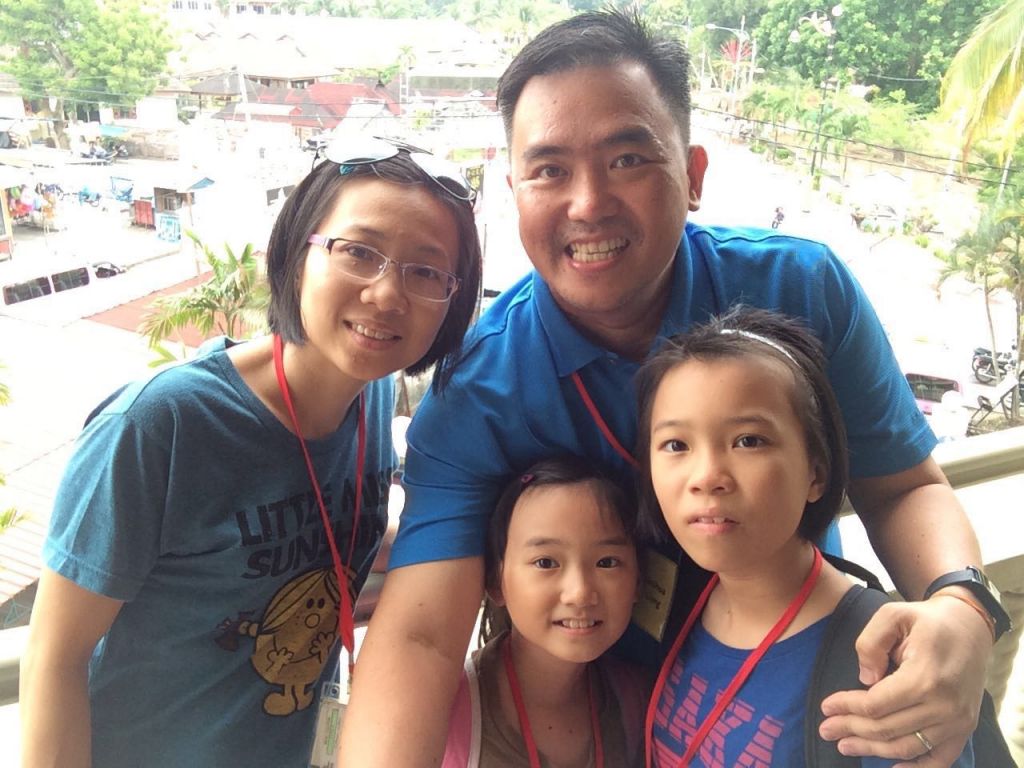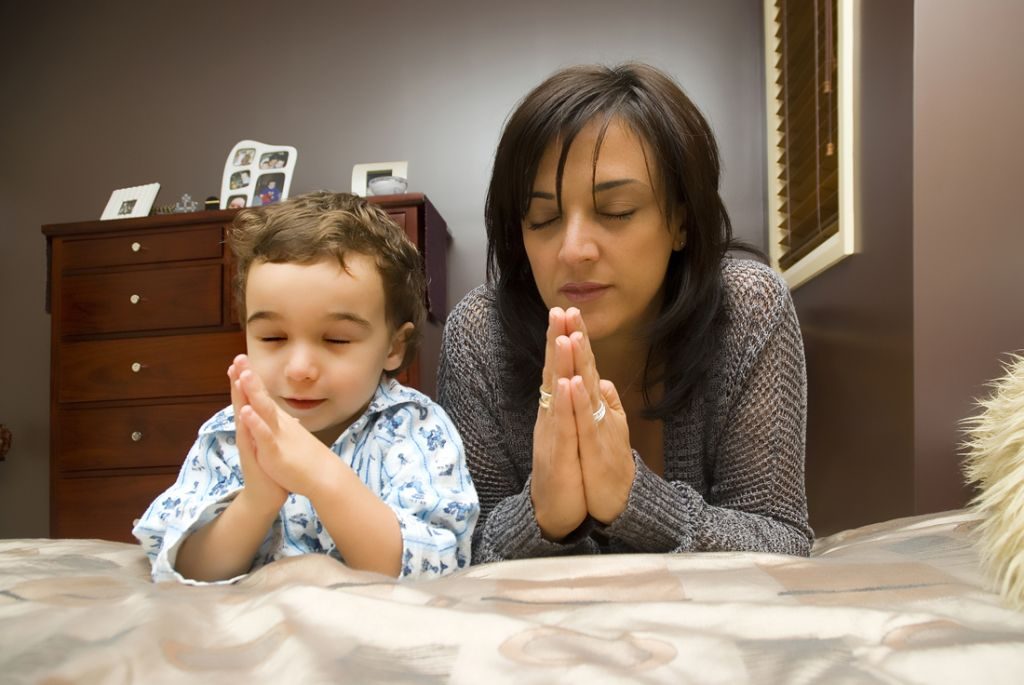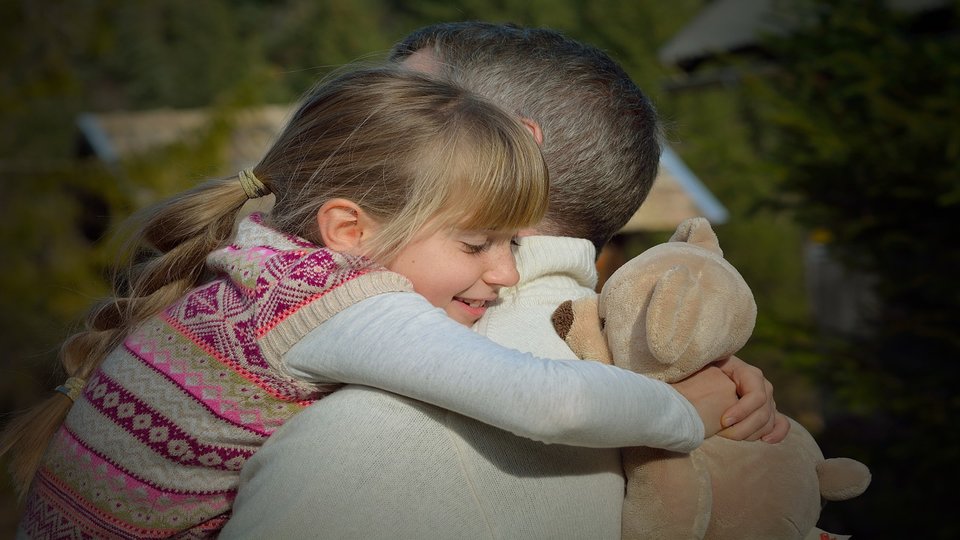
From the 14th to 17th of April, Straits Baptist church held their church camp on Pangkor Island, Perak. In line with their theme, Unity is Strength, Bro. Joshua Liong shared about the Unity of the Family on the final night of camp. He began by handing out worksheets—for the children and youth, and a separate set for the adults. The children and youth were asked not to show their parents what they were filling out (yet).
The family is a smaller unit of the church at large. No matter who you are or at what season of life you may be in, we are all part of a family. Even though Joshua’s session was focused more on the parent-child dynamic, the principles were relevant to everyone—regardless of what stage of life they are at.
“When you want to find unity in a family, a family has to be Christ-centered. Christ is the superglue that binds family together,” Joshua said.
“Nothing matters more in life than the love for God and His Son Jesus Christ, and the love for mankind, beginning with our family.” – Dr. James Dobson
“The state of the union of the country is determined by the state of the union of the family.” – Abraham Lincoln
For a country to be strong, it has to have strong families. Strong families make strong countries, and that is how it is for churches as well. Strong families make strong churches. All of us at church are representatives of a family unit.
Throughout Scripture, the language of family is used to characterize divine relationships. For instance, God repeatedly defines Himself as the Heavenly Father. He also sometimes says that His love for His children is equated with that of a mother.
“O Jerusalem, Jerusalem, the city that kills the prophets and stones God’s messengers! How often I have wanted to gather your children together as a hen protects her chicks beneath her wings, but you wouldn’t let me.
(Luke 13:34)
The relationship between Christ and His church is likened to that of a Bridegroom and His bride. “I don’t think it is an accident that there is so much language of the family in the Bible,” Joshua said. “These Biblical illustrations point to something about the Almighty God, and healthy family dynamics not only reveal the things of God but also directly reflect Him.”
Love, compassion, grace, self-sacrifice— all of these exist in the context of the family. A united family that demonstrates these characteristics in their daily experiences are like signposts pointing people toward the Creator of the Universe and gives them a glimpse of the heart of the Father.

That’s the power of the union of the family. “I’m no saying that families are perfect, but they somehow mirror the perfect holy unity between the Father, Son, and Holy Spirit. A family does not need to be perfect; it just needs to be united.”
Maintaining the unity in the family—particularly when it comes to parenting, is to be intentional and creative about passing on a godly heritage in the family. We have many good ideas and good intentions, but if we do not execute them, those good ideas and intentions are quite pointless.
Here’s the problem: When it comes to heritage, many of us grew up without a solid model of a Christian family to follow after. Some of us come from difficult backgrounds, which makes it tough for us to see God and Christ in the family setting.
Subsequently, if we are not intentional about building a godly heritage, that negative cycle would only be repeated. Lots of us grow up thinking we never want to turn out like our parents, and then end up becoming just like them.
That’s because there was not enough intentionality in making that change. There needs to be a plan of execution and an investment of time to look into how we can pass on a spiritual heritage to our children.
And so, there is a need to break that negative cycle. For all of us who have never had that experience of a healthy, united family, it is still possible. We have a God of second chances. He is bigger and more gracious than any issue we have ever encountered or faced.
Most of the time, the things our children learn are not taught verbally, but caught. When one generation loves, another generation learns. While we can teach our children all the Bible verses we know and talk to them about how important it is to have faith in God, how they ultimately learn is by observing you—their parents.

How do you respond when you are faced with a crisis or difficulty? That is how they will learn about placing their hope and faith in God. That is why we need to model that faith. It is really about having the instruction of the Lord on your life and your children’s lives.
These commandments that I give you today are to be on your hearts. Impress them on your children. Talk about them when you sit at home and when you walk along the road, when you lie down and when you get up.
(Deuteronomy 6:6-7)
Another version of this verse says that these commandments have to capture your heart. The Word of God has to first capture your heart as parents before you can pass it on to your children. “I’m not asking us to be fanatics who cannot talk about anything else but God,” Joshua said, “but everything that happens around us should be centered on God.”
Joshua went on to elaborate on three foundational areas that are passed from parents to children: social, emotional, and spiritual heritage. These are the principles to impress upon our children so that we can be Christ-centered as a family. When Christ is the head of the home, unity will surely be there. It is really tough to not be united when you are godly.
After each section, he had them fill out their worksheets, which was an evaluation of how they would rate their family life if they were to flashback to when they were sixteen years old. “The purpose of filling out these evaluations was to determine the kind of heritage that we have inherited so that we don’t repeat the negative cycles.”
1. Social Legacy: Giving the child the insights and strong social skills for cultivating healthy and stable relationships.
The building blocks that make up the social heritage are respect, responsibility, love and acceptance, and boundaries.
“The one thing I will never tolerate in my family is disrespect,” Joshua said. Whenever his children are disrespectful, he will speak to them directly. For instance, when they disrespect their mother, he would take them aside and say to them, “Listen to me. That lady over there may be your mother, but she’s my wife. And nobody talks to my wife that way.” [Applause from the audience]
“I believe that if our children are given the freedom to be disrespectful, especially to their family members, they will not have respect for anyone else.” Children who are not taught to respect their own family members will have no regard for authority figures in the future—bosses, teachers, etc. Joshua also added that respect goes both ways, as parents also need to respect their children.

Giving responsibility to children is also very important in building children up socially—even if you have a domestic helper at home. “Did you know that by the age of four or five, children already have the motor skills to wash their own shoes?”
Love and acceptance is about unconditional love BUT conditional behavior, and of course, there are always boundaries that cannot be crossed. Joshua went on to share about an exercise he did with his two daughters to teach them about respect for one another:
He gave them each a tube of toothpaste and challenged them to squeeze out every last bit of it. And so they did—and thoroughly enjoyed it! Then, he challenged them to put the toothpaste back into the tube for RM50. They were determined, but obviously could not.
The takeaway lesson he taught them from that exercise was on James teaching on using our tongue (James 3:5). We need to control what we say to others because our words have the power to build up or tear down. How we relate to others grow out of how we handle social issues in the home. If children are unable to resolve conflict at home, don’t expect them to resolve conflict in school or in the workplace when they grow older.
2. Emotional Legacy: That enduring sense of security and emotional stability, nurtured in an environment of safety and love.
Joshua shared about how his children went through a period when they were bullied at school, and while many parents would like to jump on the bullies, he pointed out that he could not do that, because they would not learn how to grow emotionally if he came to their rescue every time.
We need to help our children grow emotionally. It’s not about rescuing them every time they encounter emotional issues, but about giving them a place of emotional rest. They can be out there in the world, facing all sorts of challenges, but the important thing is that they know that when they come home, they are in a safe place. Each of us is an emotional reflection of the environment in which we were raised. While the negative can be overcome, it must first be recognized.

3. Spiritual Legacy: A process whereby parents model and reinforce the unseen realities of spiritual life.
What we inherit from our parents in terms of spirituality—whether from a Christian or non-Christian background—affects the way we relate to God now. Joshua told a story about a woman who said, “I don’t understand what they mean by “God gave His only Son for us. Why would He do that to His Son?”
This woman probably came from an environment with a negative father figure and therefore was unable to see what God did for us as the most sacrificial act He could have done. She was not able to make that connection because of her family background.
“There is a God-shaped vacuum in the heart of every person, and it can never be filled by any created thing. It can only be filled by God, made known through Jesus Christ.” – Blaise Pascal
We often try to fill up that vacuum with all sorts of worldly achievements, but the result will always be the same. Only God can fill it, and our children need to learn about their need for God. Joshua shared another personal experience with his family.
His younger daughter was only six when she went through a “crisis of belief.” His girls had spent their entire lives in church. Joshua and his wife had always talked about the importance of embracing the faith, and so they assumed that she believed—she had even prayed the sinner’s prayer.
But at six years old, she began to question. She started by asking, “If God is real, why can’t I see Him?”— a question to which her big sister almost immediately responded, “God is like the air. Even though you don’t see Him, He is there, and you can feel Him, like the wind.” It was a great answer, but she was not convinced.
Sometime later while doing family devotions, they asked her, “Do you believe in God?” And her answer was, “No.” “I was crushed,” Joshua said. “What happened? Where did we go wrong?”
This went on until another family devotion. Joshua carried out an activity that he said was going to be a lot of fun. Standing at the landing of the stairs in their home, he asked his wife and two girls to try to get to him without using the steps. So they tried all sorts of ways to make it up to him but failed.
Being the smallest, his six-year-old started to tear up and cry. If mummy couldn’t do it, and jie jie couldn’t do it, there was no way she was going to be able to do it. “That was my cue,” Joshua said. “I went down the steps and carried her up. ‘That is how we get up here,’” he said to his little girl.

We can try all kinds of ways to get to God, but the only way to have a relationship with the Heavenly Father is through the sacrificial act that Jesus did. He came down to us, and said “I am now the mediator. I will bring you to the Father.” That night, Joshua’s daughter prayed to receive Jesus as her Savior.
“I have had the opportunity to speak on many platforms and led people to Christ,” Joshua said, “but all that is no comparison to the joy of being able to lead your own child to Christ.” Sunday School is great. But faith and nurturing a godly heritage happens in the home.
As the congregation finished up with their self-evaluations, Joshua encouraged them to go home and ponder on this more on their reflection so that they can take practical steps in moving forward. He also revealed that the children had been filling out a “Parents’ report card”—an assessment of their parenting from their own children so that they could improve in the areas that needed attention.
When we understand the impact of our heritage, it gives us a new perspective on the past. Many of us need to forgive—to break away from unmet expectations, and to move forward with the future. Embrace the good from your past, and replace the bad. Before our children can choose what is right and godly, we have to choose. Unity in the family requires time and effort, but the benefits of seeing your children grow up to embrace Christ as their own Lord, are more than rewarding!
|Share The Good News|
Esperanza Ng




Leave a Reply